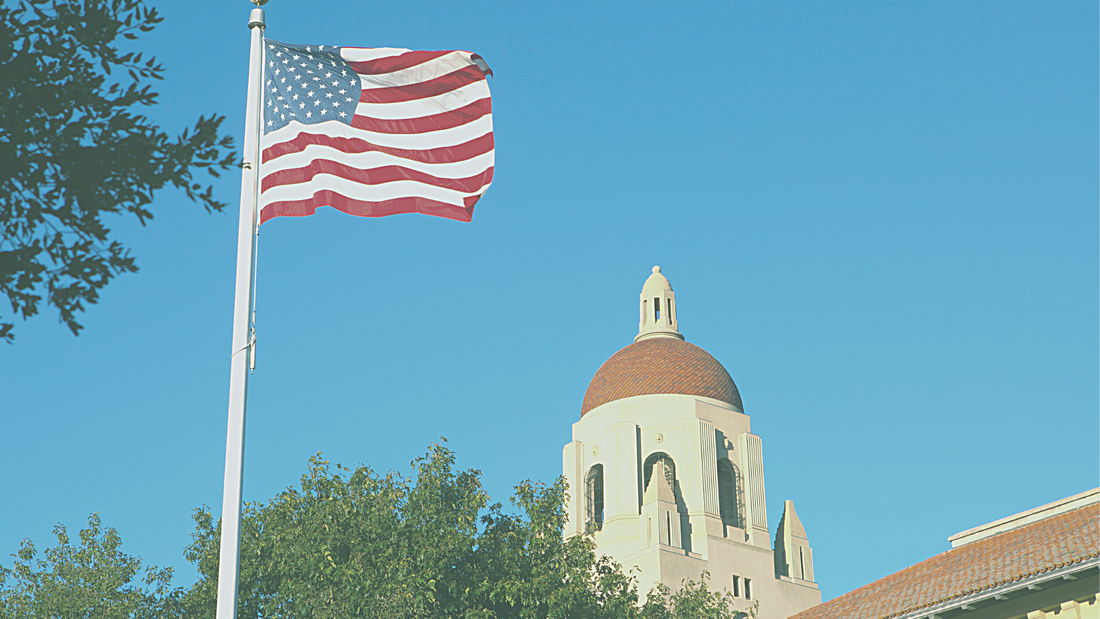|
We let some time pass for all the details to come in about the auto-da-fé that students and staff inflicted on Judge Stuart Kyle Duncan of the 5th Circuit Court of Appeals. Let us review these details and then suggest some next steps for Stanford.
Multiple sources and video confirm the judge was shouted down, berated, and abused during a lecture he had been invited to give to the Federalist Society chapter at Stanford Law on “The Fifth Circuit in Conversation with the Supreme Court: Covid, Guns, and Twitter.” In the leadup to Judge Duncan’s talk, students at Stanford Law put up flyers that not only targeted Judge Duncan, but also students in the Federalist Society, posting their pictures and saying they “should be ashamed.” Over 70 students also emailed the FedSoc chapter asking it to cancel the event or move it to Zoom, arguing that Duncan has “proudly threatened healthcare and basic rights for marginalized communities.” On the day of the event, around 100 protesters picketed outside the event, booing attendees, and calling out individual classmates. Protesters came into the room, holding signs with political slogans and shouting over any attempt by Judge Duncan to speak. For about ten minutes, Judge Duncan tried to give his planned remarks, but the protestors simply yelled over him. Tirien Steinbach, Stanford Law’s Associate Dean for Diversity, Equity, and Inclusion, and the University's student-relations representative, initially allowed protestors to continue to disrupt the event. She failed to enforce the school's policy against disrupting speakers, despite assurances given to this speaker that he would be protected. Finally, Dean Steinbach stood up to control the crowd, but only after taking time to criticize Judge Duncan, saying that he “has caused harm.” Rather than telling disruptive students to respect the speech of a sitting federal judge and ask challenging questions later, Steinbach stated that “this event is tearing at the fabric of this community that I care about and am here to support.” Steinbach repeatedly asks: “Is the juice worth the squeeze?” She clarified “is it worth the pain that this causes and the division that this causes?” Apparently free expression is only worth defending if a diversity administrator finds it not divisive (a standard as old as the trial of Socrates). Steinbach finally encourages the students to allow Judge Duncan to speak, but without any serious reprimand to the protesters who violated school disruption policies, who lobbed verbal abuse at fellow students and the judge, and who held the most power in this situation. Thus, she validated their tactics and set a terrible precedent. Although Judge Duncan was eventually allowed to speak, he never gave his prepared remarks as the audience moved directly to Q&A. The questions were predictably unbecoming of law students at one of the nation’s top schools. One heckler hurled lewd insults, and Judge Duncan had to be escorted out by federal marshals. After the event, Stanford President Marc Tessier-Lavigne and Stanford law school dean Jenny Martinez issued a joint statement apologizing to Judge Duncan. Citing Dean Steinbach’s speech, the statement said that “staff members who should have enforced university policies failed to do so, and instead intervened in inappropriate ways that are not aligned with the university’s commitment to free speech.” This incident was beyond unacceptable. You don’t have to agree with the judge’s views on jurisprudence or gender to worry about where such behavior is heading. While Protect The 1st is pleased by Stanford’s statement, it is only a baby step in the right direction. Stanford must commit itself to restoring freedom of speech, academic freedom, and respect for diversity of thought. Stanford can begin by inviting Judge Duncan back to speak. Such a gesture would send a strong message that Stanford is truly interested in what a sitting federal Judge has to say. In January, Yale Law did much the same when it reinvited Kristen Waggoner, CEO, President, and General Counsel of the Alliance Defending Freedom, to speak after undergoing a similar struggle session. That protest caused a firestorm, with some judges announcing they would not consider Yale Law graduates for clerkships. Stanford could also take a hard look at the culture of censorship and surveillance that it, like many schools around the country, has built in the last few years. Last month, Protect The 1st reported on Stanford’s bias reporting system, which is used to anonymously report on students or faculty who commit wrongthink. Scores of Stanford faculty have called on the university to investigate free speech and academic freedom on campus, and to abolish the anonymous reporting system. What happened to Judge Duncan is just one flare-up of the chronic problem of intolerance, fear, and repression present on some college campuses. And if Dean Steinbach and students do this to another speaker, Stanford must defend its reputation by firing Dean Steinbach and suspending or expelling students. Comments are closed.
|
Archives
June 2024
Categories
All
|
ABOUT |
ISSUES |
TAKE ACTION |



 RSS Feed
RSS Feed